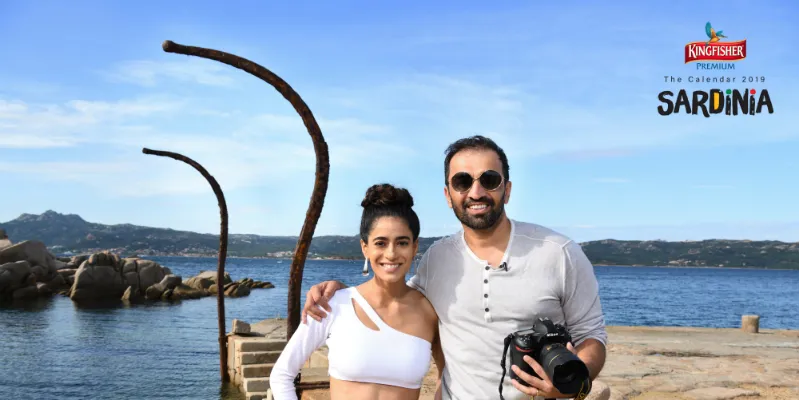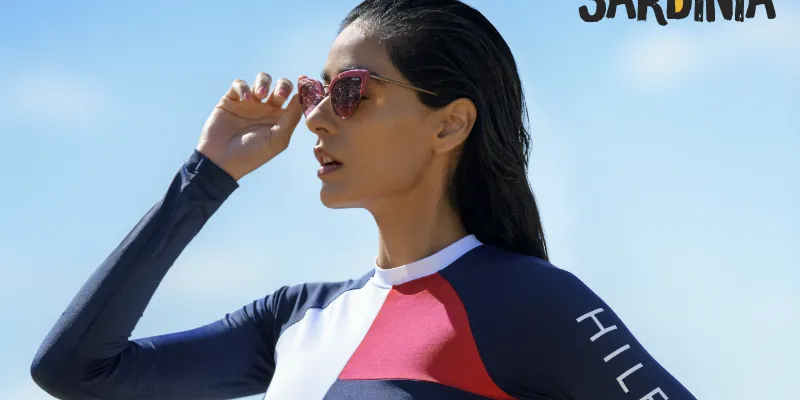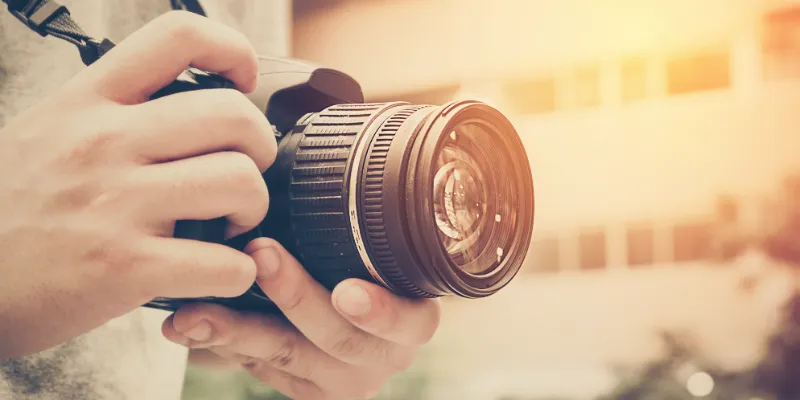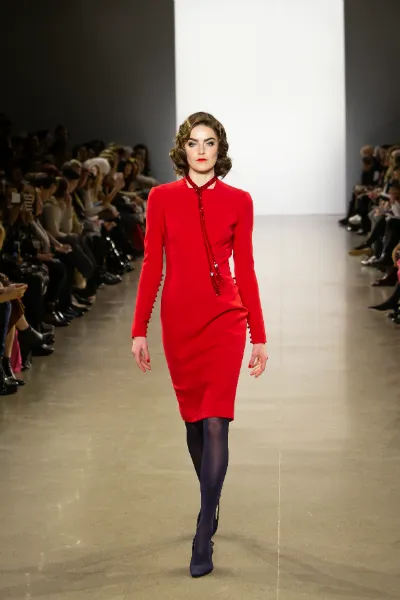Through the lens: How Atul Kasbekar, photographer and producer, keeps the Kingfisher calendar brand in sharp focus
Atul Kasbekar, fashion photographer and Bollywood film producer, is best known for his work on the annual Kingfisher calendar. In an exclusive interview with YS Weekender, he speaks about his experiences while shooting for the calendar
If you’ve been dreaming of the sunny skies and golden sands of an Italian paradise, here’s a chance to catch a glimpse of the prettiest locales and the fittest models captured by the infallible lens of the inimitable Atul Kasbekar. This year, he did the shoot in Sardinia, the second largest island in the Mediterranean Sea. With 2,000kms of sparkling coastline and stark mountainscapes, this windsurfer haven was the backdrop to the annual Kingfisher calendar for 2019.

Atul Kasbekar with one of the models of the Kingfisher calendar
Ever since Atul moved back to India from the US in 1990 and launched his professional career as a photographer by opening his studio Negative Space, he has been the name behind the calendar that launched several models into instant stardom. Earlier editions were shot in Mauritius, Thailand, South Africa, Australia, the French Riviera, Goa, Ladakh, Udaipur, Andaman Sea, Maldives and Sri Lanka, and each has been a masterpiece due to his spectacular skills.
YSWeekender caught up with Atul to ask him about all that goes into these exclusive shoots and how he makes every one of them so special.
Edited excerpts from an interview:
YSWeekender: Can you tell us what the experience of creating the Kingfisher calendar is like? Why did you choose Sardinia this year?
Atul Kasbekar: Kingfisher has always had the tagline of the ‘King of Good Times’ and when we choose any location, we always try to find a destination that will add value to the brand’s philosophy.
There needs to be a certain element of mystique at our shoot destinations. We do not usually go to places that are too commercial and very high on the tourist map. It has routinely happened that places that we have shot at get an upsurge of well-heeled Indian tourists. As a result, we often get invited to shoot at various destinations.
While Sardinia is a part of Italy, it is off the beaten track and a short flight from the mainland. It has a lovely combination of playground for the rich and famous, like Porto Cervo, as well as lots of quiet beaches where one can chill and relax.
YSW: What are some of your favourite destinations for the Kingfisher Calendar shoot?
AK: My favourite destination so far has been Mykonos, Pamukkale in Turkey, the Maldives and the jungles of South Africa. This year in Sardinia, we focussed on just four or five spots and got the maximum mileage from them. Cala Luna and Porto Cervo were quite special.
YSW: What were some of the setbacks you faced?
AK: There will always be challenges during a shoot. However, we have done this for over a period of time. This is the 17th edition of the calendar and the planning took nearly around four months. We have a team assigned to work for each vertical, right down to the smallest details. Our team supervises all aspects of the shoot and always ensures smooth operations. In Sardinia, a lot of the conditions were particularly challenging as the season was changing. Hence, inclement weather and high winds were a factor that needed to be dealt with every day.
YSW: How are the models chosen and what quality do they need the most?

Models are chosen on the basis of their fitness levels
AK: I am always looking for an X-factor among the models. We need them to be very fit to carry off the swimsuit. This has nothing to do with being skinny and not to be mistaken as such. The calendar has been a platform for many faces launched in the past. We test all the models in identical conditions in the studio and send a combination of those images as well as those from their previous portfolios to the client. The management of UB takes a final call on who makes the cut.
YSW: How do you choose the location, theme and look of the calendar?
AK: We are a combination of Pirelli and Sports Illustrated. Both of them have been in existence for more than 60 years. While the Sports Illustrated version is only swimwear and is commercially available, the Pirelli calendar can only be acquired if it is sent to you from the desk of the company Chairman. The Kingfisher Calendar is a swimsuit calendar that is not commercially available and can only be acquired if it is sent to you from UB. An advertising agency called DOO Creative from Hyderabad has been designing the look of it for the past six years.The location is chosen after weighing the pros and cons of each destination.
YSW: What makes the Kingfisher calendar so special?
AK: Apart from the fact that many faces have been discovered from the pages of the Kingfisher Calendar, I believe it has been a part of the modern Indian women’s growth story. Our girls are confident, proud of their bodies, work out hard to be fit and embody the strong character that Indian women have.
At no point has the photography or styling for the poses ever been construed as “cheap” by anyone. It is a source of genuine pride for us that our phones ring off the hook every year by prospective talent wanting to be in it.
YSW: How did you get into photography?
AK: I was studying Chemical Engineering at the UDCT and I quit in my second year. I received some sound advice from Prahlad Kakkar about doing what I enjoyed for a living and since I truly enjoyed photography, I decided that was it.
I went to study at the Brookes Institute in California and assisted for a year in LA. I would strongly advise people thinking of getting into photography as a profession that some amount of formal education would be a good idea to start with. I would also recommend that they simultaneously take courses in art appreciation as this would only help their pictures.
YSW: What are the qualities that a good photographer needs?

Good photography needs technical finesse
AK: I do believe that after a point in time, good technique is easily learned. It is after a few years that your technical finesse marries your artistic influences.
Today, given the number of apps and idiot-proof cameras and smartphones present, anybody can make a great shot on a given day. Hence, to be consistently excellent, it is important that one appreciates and has at least a reasonable interest in all art forms around us.
YSW: What was your first camera like? Which photograph of yours is closest to your heart?
AK: My first cameras were 110mm Kodak and Agfa Asoly Click – III. They had very basic settings but I genuinely enjoyed the process of taking pictures. Most of them were rubbish shots of unsuspecting family members. It would be difficult to name a favourite image but there have been a fair number of campaigns over the years that have won awards.
The Kingfisher Calendar, for that matter, was the first Indian entry to win awards at the Food and Beverage Advertising in London (FAB Awards). This happened twice.
YSW: In these days of selfies, has the art of photography changed?
AK: I have always believed that no typewriter writes a novel by itself. Similarly, equipment is only a means to an end. What you do with it is up to you and can be credited to the life experiences that you have had.
YSW: How has technology helped a photographer today?
AK: I think the process of taking photos has become a lot more democratic. On a given day, almost anybody can take a halfway decent picture. They can always enhance that image using Lightroom or Snapseed and similar apps with a reasonable amount of practice. Having said that, some of my favourite photos to date are those taken by people like Richard Avedon. Against a simple white or grey background with possibly one or two lights. What technology has done is that a cardiac surgeon, a lawyer, or an architect could consistently get a decent picture. However, on no day can you do what they do.
YSW: What are some of the things that inspire you when you plan a photograph?
AK: When you are shooting for advertising, there are clear cut briefs that are in place. Your art is effectively for the mart. However, for me what is a consistent turn on is light. I am constantly observing light around me and it is a continuous love affair.
YSW: What is your advice to budding photographers?
AK: I would recommend to budding photographers that they would do some kind of photography course, to learn the basics. I would also suggest that they try and assist a known photographer in the photographic field of their choice. There is the inevitable investment in costly equipment. which is a given if you want to be a professional.
YSW: How has photography evolved as a profession?
AK: Literally, anybody and everybody now believes that they can shoot professionally. The head of a jewellery company recently wanted to shoot his own advertising assignments for his brand. So, the biggest challenge is that there are literally thousands of “professional photographers”. To separate yourself from fierce competition, it would be a good idea to have a distinctive style that constantly evolves.
YSW: Has the modelling scene changed today?

Models with a high Instagram profile get assigments
AK: The modelling scene has drastically changed over the last two decades. With the influx of foreign models, I think we have effectively wiped out the “Indian Supermodel”. Overall, people are a lot more conscious of their physical appearance and diet. Literally, everybody now on the other side of the camera is in terrific condition. The advent of social media has made a big difference. Often models with a higher Instagram profile will get the assignment over another who doesn’t.
YSW: What was it like shooting films?
AK: Producing a film is a bit like conducting an orchestra. I would like to think that we create a platform for creative people to interact and hopefully create harmony. It is a numbingly tiring process, but when you get it right, it is extremely rewarding creatively.
YSW: Who are some of your photography icons?
AK: Richard Avedon, David LaChapelle, Jimmy Nelson, Raghu Rai, Herb Ritts and Annie Leibovitz are just a few of the names that I have consistently admired.
YSW: What do you love doing when you are not working?

Atul's new passion is learning about Burgundy red wine
AK: I think I am a reasonably good time manager. I get in an hour of workout every morning and apart from work, there is a contained social life, interest in fine spirits and fine cigars, avid interest in all sports especially Indian Cricket and World Football. My newest passion is learning more about burgundy red wine.
YSW: What are some of your next projects in the pipeline?
AK: We have about four films that are script ready. We are in the final stages of attaching talent to them and getting on the floors. The target in Ellipsis is to release five films over a two-year period.







